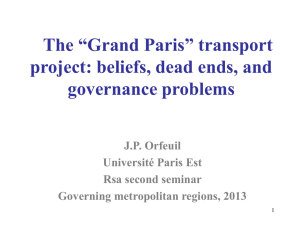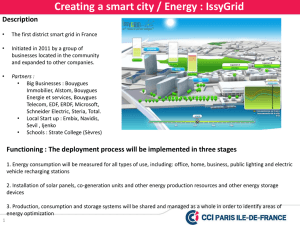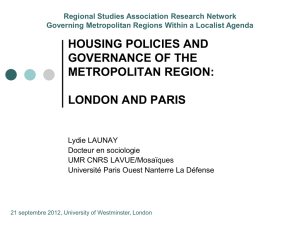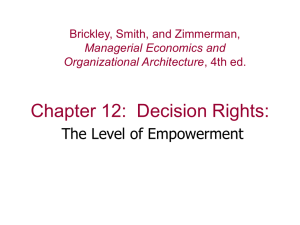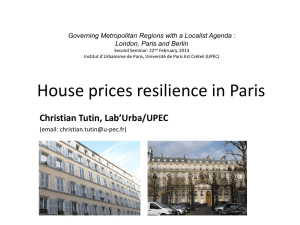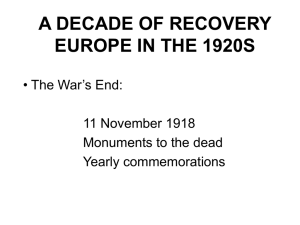Paris Ile De France: Unregulated Competitive Decentralization
advertisement
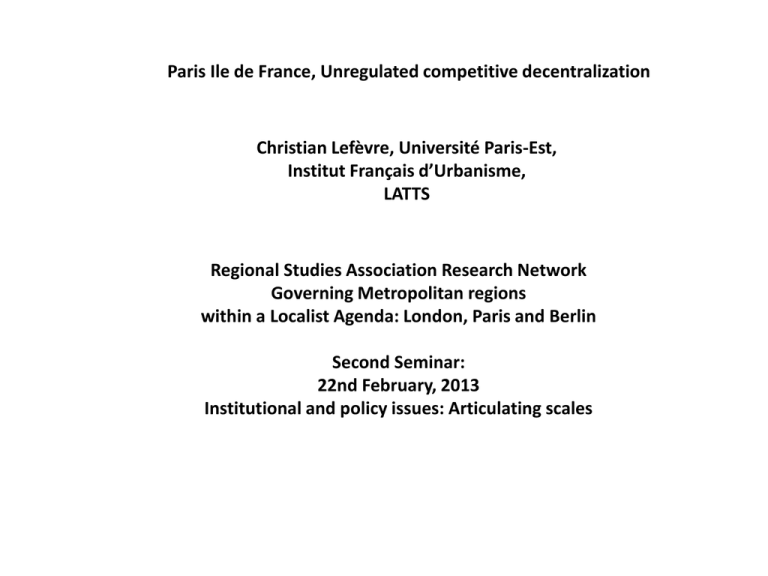
Paris Ile de France, Unregulated competitive decentralization Christian Lefèvre, Université Paris-Est, Institut Français d’Urbanisme, LATTS Regional Studies Association Research Network Governing Metropolitan regions within a Localist Agenda: London, Paris and Berlin Second Seminar: 22nd February, 2013 Institutional and policy issues: Articulating scales 3 major periods 1950-80s : State-led metropolis 1980-00s: Unfinished decentralization 2000-today: Unregulated competitive Decentralization 1950-80s : a State-led metropolis Major Developments - La Défense - Public Transport and road network - Major housing schemes - universities, etc. New public agencies and public corporations - DATAR - AFTRP - IAURP - District de la région de Paris 1980-00s: Unfinished decentralization 1982-1983: Decentralization Acts and creation of Regions Ile de France as an exception: Planning and Public Transport not transfered to local governments 2000-today: Unregulated competitive Decentralization New powers to the Regional Council Too many players: extreme fragmentation Concurrent initiatives for territorial leadership New powers to the Regional Council STIF (Public Transport) is controlled by the Region A new master plan elaborated by the Regional Council State remains in control of transit operators State must approve the Master Plan Too many players: extreme fragmentation The 1300 municipalities of the Ile de France The 8 départements Concurrent initiatives for territorial leadership City of Paris: Metropolitan conference, Paris Métropole and Metropolitan pole The State: the Grand Paris project Regional Council: Reluctance to participate and not very present City of Paris: Metropolitan conference 2006-2009 Paris Métropole: 2009 Paris Métropole in 2012 ---- Metropolitan Pole? The State: the Grand Paris project OIN Grand Paris Transport The Grand Paris Act (2010) The OIN (Zones of National Interest) in the Ile de France region The Grand Paris Transport project CONCLUSION Competitive Decentralization Conflicts of vision and territorial leadership No legitimate leader No places for dialogue, mediation and negotiation
